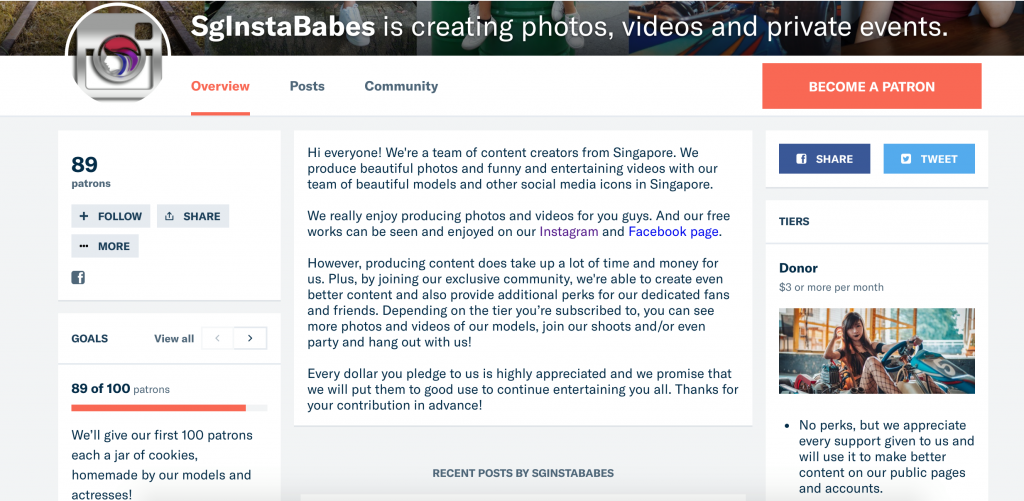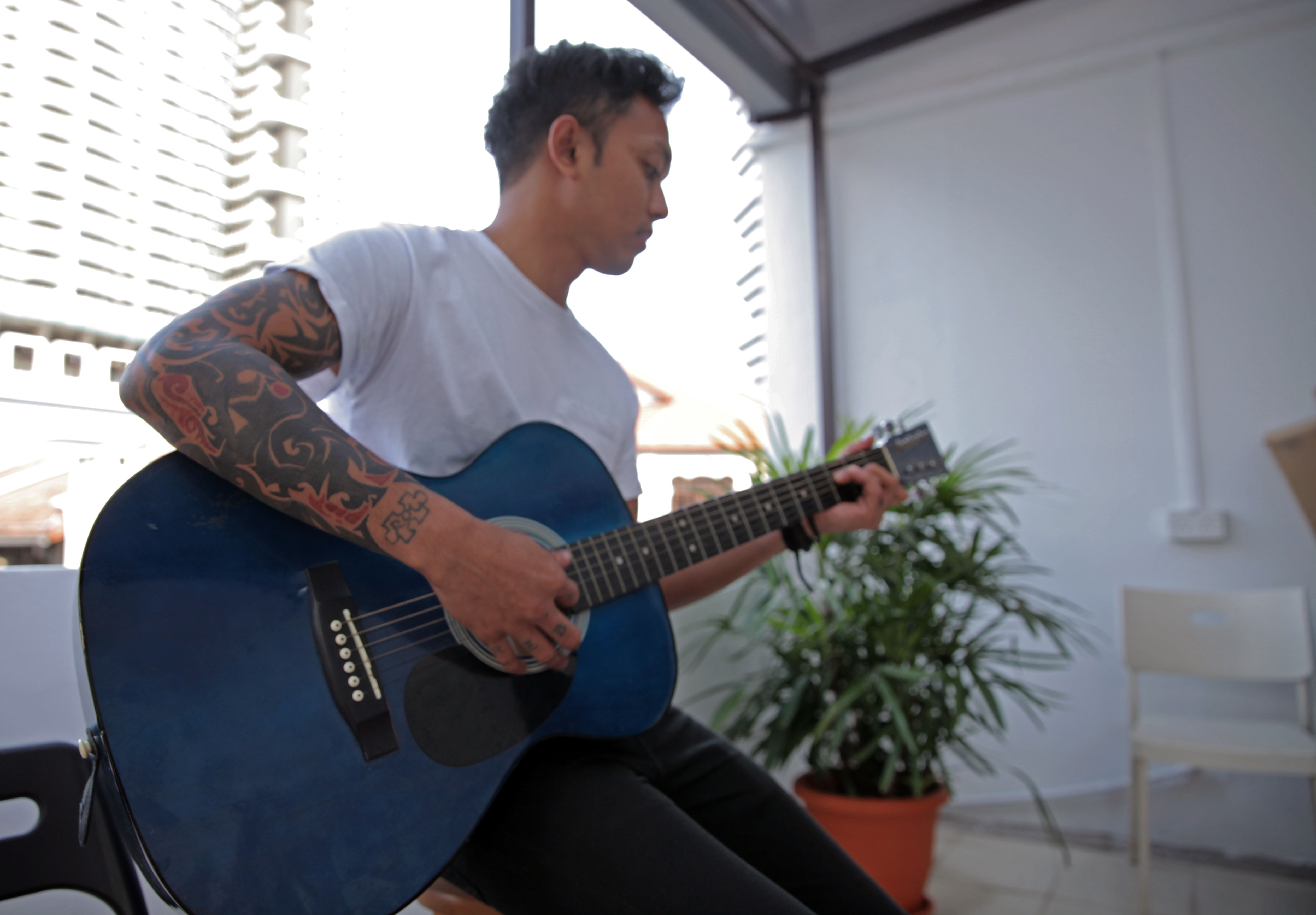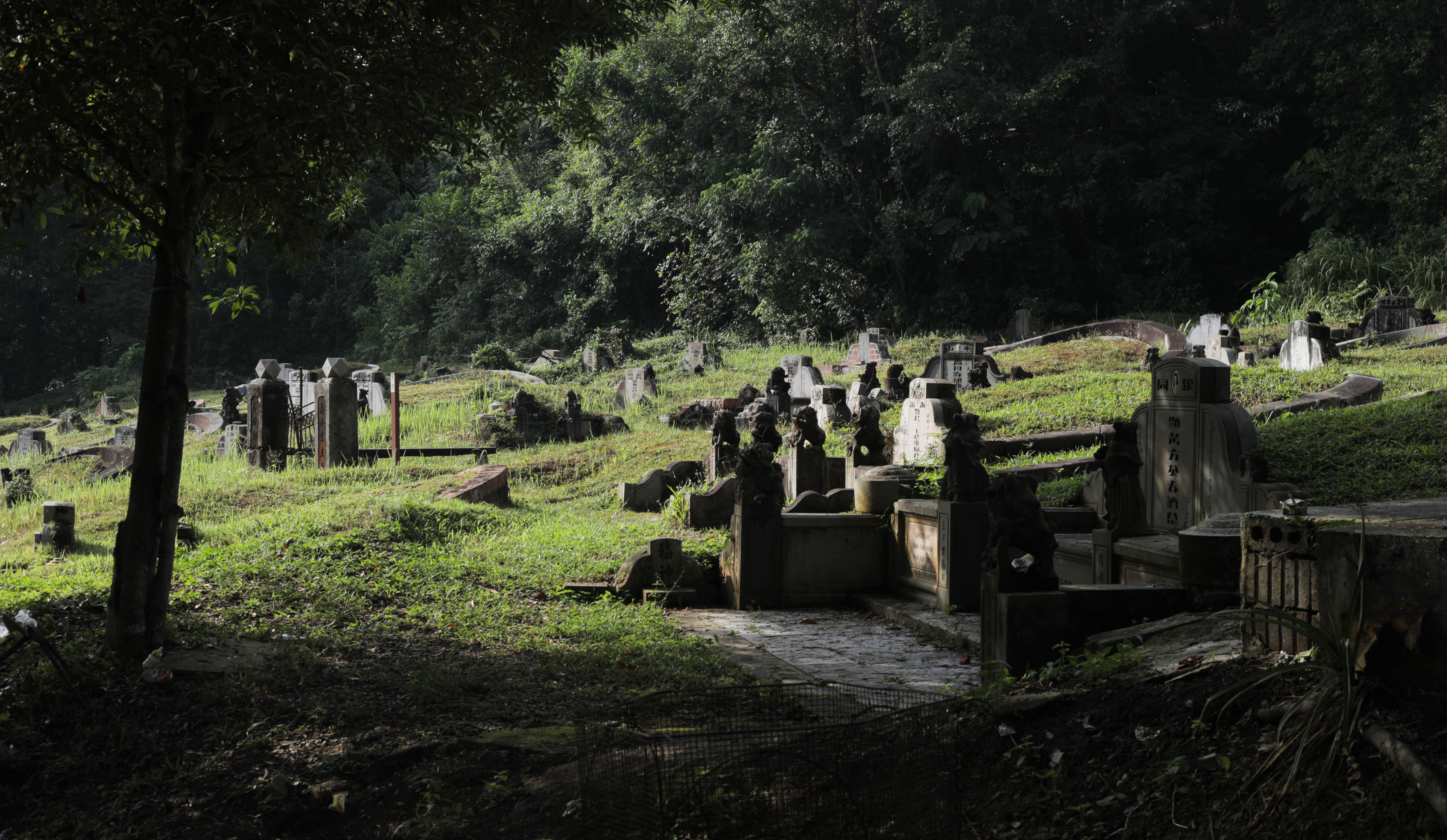 GIF from GIPHY
The fact that it is such a foreign concept also made me think of the worst that can happen, and I sure as hell didn’t want to end up bankrupt from uninformed investment choices at such a young age.
GIF from GIPHY
The fact that it is such a foreign concept also made me think of the worst that can happen, and I sure as hell didn’t want to end up bankrupt from uninformed investment choices at such a young age.
So How Did People Actually Get Into It?
Curious to see how some of my peers got started in their foray, I checked in with two of my friends who’ve invested in some stocks since their early twenties. Exactly like how many of us who haven’t started investing would feel, the main struggle that 26-year-old Daniel faced when he started investing at 20 is finding the initial courage to do it. Fortunately for him, a degree in finance and capital from a father who is quite an avid investor gave him a head start. For the rest of us who aren’t that lucky in that sense, it’s hard to start because we don’t even know what we don’t know - which is pretty much the most helpless state one could be in. GIF from GIPHY
However, like what DollarsAndSense.sg wrote in an article about investing with just $100 a month in Singapore, “Setting aside a large sum of money and acquiring extensive knowledge before you actually start investing is not only unnecessary and impractical, it may not even be the ideal situation.”
As for 26-year-old Billy who paid to learn from investment courses, his challenges were figuring out what stocks to buy and which platform to use when he first got started at 22. And it was a nerve-wrecking process of trial and error before he got the hang of things.
Even for Daniel and Billy today, they still find themselves lacking time to monitor their investments.
That’s where technology like the new robo-investing service comes in.
GIF from GIPHY
However, like what DollarsAndSense.sg wrote in an article about investing with just $100 a month in Singapore, “Setting aside a large sum of money and acquiring extensive knowledge before you actually start investing is not only unnecessary and impractical, it may not even be the ideal situation.”
As for 26-year-old Billy who paid to learn from investment courses, his challenges were figuring out what stocks to buy and which platform to use when he first got started at 22. And it was a nerve-wrecking process of trial and error before he got the hang of things.
Even for Daniel and Billy today, they still find themselves lacking time to monitor their investments.
That’s where technology like the new robo-investing service comes in.
A Gem For Beginners And The Time-Starved
As the name suggests, robo-investing works like a virtual consultant and is basically an online investment advisor that uses algorithm to monitor your investing portfolio. The automated digital investment platform will help match your needs and preferences to portfolios best suited for you. In other words, your ‘digital assistant’ will recommend portfolios to you so you can get the best possible returns. One such robo-investing service available in Singapore is OCBC RoboInvest. Whether you’re new to investing or want to invest but are too busy to do so, OCBC RoboInvest helps you invest and grow your savings with minimum effort. The first of its kind offered by a bank in Singapore, it’s an investment platform that lets you choose your preferred portfolio and uses algorithms to track and rebalance your investment portfolios, with your approval.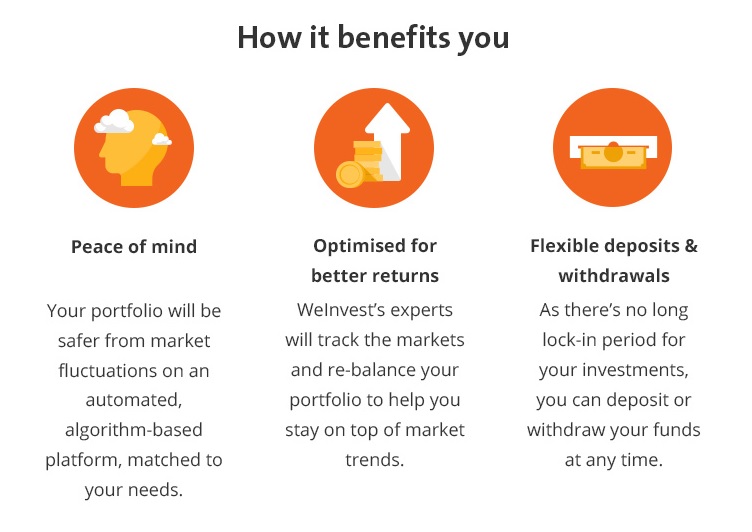

THEN I GOT PREGNANT
I should have known that being careless would one day put me in a sticky situation: getting accidentally pregnant at 16. When the gynaecologist congratulated me for being 4 months pregnant, it took me a minute to fully digest what she’d said. I was stunned. I couldn’t believe it. How could I have let this happen? What are people going to say? I was not even capable enough to take care of myself, how could I bring up another human being? The first thing I did after I left the clinic was call the father of the child. When I told him about the baby, all he said was,“Are you sure it’s mine?”I didn’t expect much from him as he never signed up to be a parent. But neither had I. After all, I was only 16. After knowing that I had to deal with my pregnancy on my own, I panicked. I realised I had two options - I could either give birth to the child and somehow find a way to bring him or her up alone or I could get an abortion. When I thought about the life growing inside me, I knew there was no way I would be able to give him a life that he deserves - one with stability and a happy family, where he would be wanted and loved. But the thought of getting an abortion was heartbreaking as well. Taking a life isn’t something that I could turn back from. Once done, it was done. I’d have to live with that decision for the rest of my life. I kept asking myself: Was I prepared for that? Could I live with myself after that? The week that followed was torturous. I had decided that getting an abortion was the best option for me at the time. It took me a lot of strength to make the call to book an appointment for the abortion. At that point, I had only told two people about my pregnancy - my father and my best friend. I wasn’t expecting the reaction I got from my father. I wanted him to scold me, scream at me, tell me how wrong I was for not listening to him. But he didn’t do any of those things. He didn’t say anything and just quietly paid for the abortion. I knew that I had disappointed him. And I knew I didn’t deserve his help.
THE GUILT OF AN ABORTION
Despite telling myself repeatedly that this is the best decision for me, I couldn’t help but feel like a murderer. Knowing that I was about to take a life was the worst feeling in the world. I kept thinking of every possible thing I should have done that could’ve prevented this day from ever coming. “I should have used protection.” “I shouldn’t have slept with that guy.” “I should’ve stayed at home that night.” But it was too late now. On the day of the abortion, every second I laid in that bed waiting for the nurse was agonising. The last thing I remember before the anesthesia kicked in was looking down and whispering to my belly,“I’m sorry, but I don’t have a choice.”I woke up relieved that the procedure was over, but at the same time, I felt a wave of bottomless sadness. I still felt guilty. That night, a child appeared in my dreams. In the dream, I saw the back of the child seated on a chair. I remember feeling terrified as I stared at the child’s head, unable to move. I woke up in tears that night. I cried myself to sleep every night and woke up crying every morning as the nightmare became a recurrent thing. The fear and crying in the middle of the night became a vicious cycle and was one of the most dreadful periods of my life. Thankfully, the nightmares stopped a month later.
NOT AGAIN
Less than a year after the nightmares stopped, I found myself looking at the pregnancy kit and muttering to myself, “not again.” I was no longer 'sleeping around' with guys I barely knew and had just got into a new relationship with my then-boyfriend, Timothy*. My heart sank as I internally reprimanded myself for being so careless again. I was angry at myself. Had I learnt nothing from the first time? When I told Timothy about it, we both decided that we weren’t ready to be parents and we couldn’t give our child a good life, so we opted for an abortion. To my surprise, there were no nightmares this time. But I was filled with self-doubt: Did I not feel guilty anymore? Shouldn’t I have felt guilty?I had made so many mistakes in the past, and now I felt nothing about killing a child.Does that make me a horrible person?
A MOTHER AT LAST
At 19, I was pregnant for the third time. I felt incredibly lucky this time round because despite going through two abortions, it felt that ‘destiny’ had somehow given me another chance to be a mother. Maybe it was the fear of karma, but I knew that I wouldn’t have been able to live with myself had I gone through another abortion. So this time, I decided to keep it. Timothy was supportive of my decision to keep our child too. But as we entered my last trimester, the fights started, and it got worse. He would threaten to kill me and our child and at his worst, he would physically hit me. On hindsight, I should have ended the relationship then, but as the mother of our child, I was holding on to the hope that things would get better after the baby is born. I was wrong. The physical and verbal abuse didn’t stop even after I gave birth. Timothy didn’t stop hitting me and he continued to threaten to kill me and our son, Jeremy*. I held on for two months before realising that this abuse wasn’t going to stop. So I ended it. I broke up with Timothy, took Jeremy, and left for home. I had to do right by my son. I couldn’t let him be around Jeremy any longer. I was afraid of Jeremy getting hurt because of him, and I would never be able to forgive myself if that happened. Even though it hurts that things didn’t work out with Timothy, and being a single, young mother is hard, I never regretted giving birth to Jeremy.A LEARNING JOURNEY
Looking back, I am not proud of my history. What I thought was ‘fun’ back then, I now realise was just part of my childishness. I wish I had been less playful and more careful in my teenage years. Today, I am a 22-year-old single mother of a 3-year-old. And I’m happy to say that my life has changed for the better. I have a boyfriend who loves me despite everything, and a family that has learnt to forgive me for my past mistakes and accepted me despite everything. I never saw myself becoming a single mother at 19. In fact, I never really saw myself as a mother at all because of my lack of maternal instincts. But I guess that’s what made becoming a mother all the more special for me. Unlike in the past, I don’t just do things because I feel like doing them. Now I do what’s best for me and my son. I’m also a lot more grateful now, especially to my parents. I’ve heard of parents disowning their daughters for getting pregnant young and keeping the baby, but I’m so thankful that my parents stuck by me and supported every decision that I made. Without them, I would have been completely alone. My past has made me who I am today. Had I given birth when I first got pregnant at 16, I probably wouldn’t be half the mother I am today. And had I not made the mistakes I have made, I could still be that naive girl who’s too playful for her own good. While I still have a lot to learn, everything I’ve been through has made me a better mother and a better person, and I’m proud of myself for that. *Names have been changed to protect the identity of the individuals. Also read: Why I Chose To Be Friends With My Cheating ExGoing Against The Will Of His Only Family
Most of us will have no qualms going against our parents once in awhile because after all, our growing up phase also meant us wanting to ‘live a little’. For Ludfee, things are different, because he never had parents. Ever since his parents left him at the hospital after he was born, his grandparents have been his only family. He never knew who his mother or father were, how they look like, or why they abandoned him, but as I chatted with Ludfee, I deduced that he is someone who chooses to look on the bright side of things. “I wouldn’t wish that things were different. I prefer staying with my grandma actually, because I’ve heard about friends having to face strict curfews and rules from their parents. My grandma isn’t very strict, which I’m grateful for. But she nags about religion.” Making the decision to pursue music wasn’t easy back at home as his grandmother wanted him to take a ‘traditional route’ in business. He wanted to study Digital Audio Video Production, but went for businesses services at ITE College Central in the end so as not to complicate matters at home. Nonetheless, arguments with his grandmother still happen from time to time. “My grandma would always say that my priorities are wrong and that I’m choosing music over religion. It gets tiring to have to argue about this again and again.” Ludfee explained how he has had to forgo events like family dinners or religious gatherings for competition trainings or performance rehearsals. However, he tries to ‘lessen the burden’ as much as possible, like taking up a barista job after secondary school to earn his own keep and to fund his own music pursuits. “My grandma have somewhat of an income as she works at a food stall with her friends. But I want to earn some money for myself and for my music instead of relying on her.”Making It Work
Like all musicians in Singapore, Ludfee knew that it wasn’t going to be an easy route. With a cappella group, That Acappella Group (T.A.G), he has gotten many performance opportunities including singing for our President and also competing in this year's National A Cappella Championships, where they have been crowned the winner and 1st Runner-up in the College Category.

Support Our Local Talents At Voices
Although Ludfee has big dreams of publishing his own music and also sharing his interest as a music teacher in the future, his current goal is getting more publicity and appreciation for his music. Catch Ludfee at Voices – A Festival of Song at Esplanade - Theatres on the Bay this 7 to 9 December, where he will be performing with T.A.G as the lead bass singer, and also tenor and alto with Sticks & Kebab!


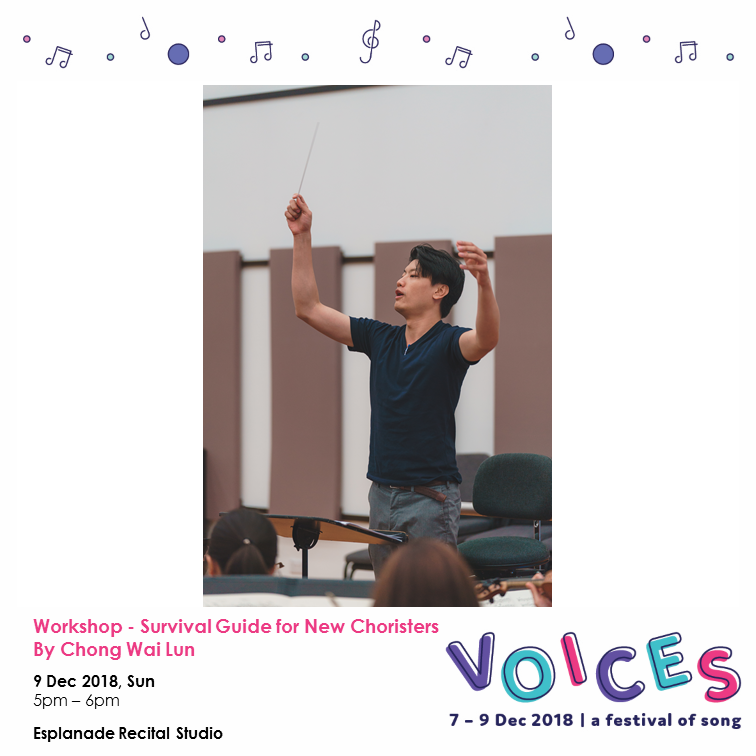
1. IT WAS AN ACCIDENT
I only masturbated when I was 18 because I always thought it was a “dirty” deed from the way my friends used to tease each other about it. But one night, I was lying on my bed and hugging my bolster while watching a movie clip that turned me on. That’s when I impulsively began rubbing my legs against my penis (with my clothes on). I remember it feeling damn good. I kept rubbing until... yeah, it came out. Did I accidentally masturbate? Maybe. - Riduan, 21
2. BOYFRIEND WANTED TO WATCH
The first time I masturbated wasn't by choice. I was 18 and I only did it because my boyfriend wanted to watch me touch myself. It felt like my body wasn’t even mine. I haven’t done it since we broke up. - Jas, 213. LATE-NIGHT GAMING
I was a 15-year-old who was really into this massively multiplayer online role-playing game (MMORPG). One night I decided to strip one of the female characters naked (well, almost naked because I couldn’t remove their underwear). I don’t know what made me think that I should rub myself, but I did. But after the wave of pleasure passed, I quickly put my clothes back on because I felt dirty. - Wei Jie, 25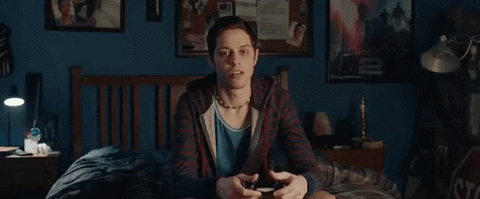
4. OUT OF BOREDOM
I was 18 or 19 and wanted to try it out for myself, having heard how great it feels. I went online and googled tips on masturbating. During school break, I was home alone and decided to try it out. It was horrible and uncomfortable. I didn't use porn or anything. I thought you didn't have to be horny to masturbate, I thought it was just something you could do when you were bored. - Aisyah, 255. THE ABSENCE OF A GIRLFRIEND
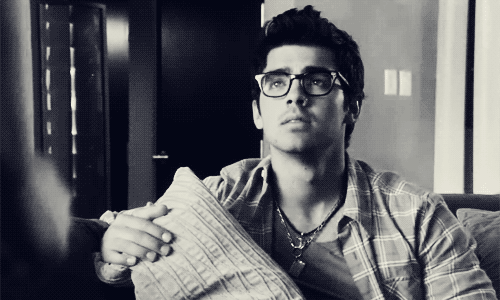
6. SINNERS GO TO HELL
I was 13 years old and my friends were talking about some website in class, so we went to one dude's house to check it out after school. We realised it was porn, and us being guys, we just kept on scrolling. Then one of my friends asked us if we had jerked off before. Most of us didn’t know what that meant, so he explained it to us. That night I went home to the same website and tried jerking off. I felt a mix of emotions after, but being Christian, I remember thinking I’d committed a sin and I’m going to hell. - Jason, 26
7. AT THE AGE OF 4
I was 4 years old, and I didn't know what it was or what I was doing, I just knew that if I pressed my genitals onto something, it will feel good. There was once when my mum caught me in the act and interrogated me, asking me who I learnt that from. That made me think that I did something wrong, because why else would I get chided for it? - Sophia, 198. WERKING THE POLE
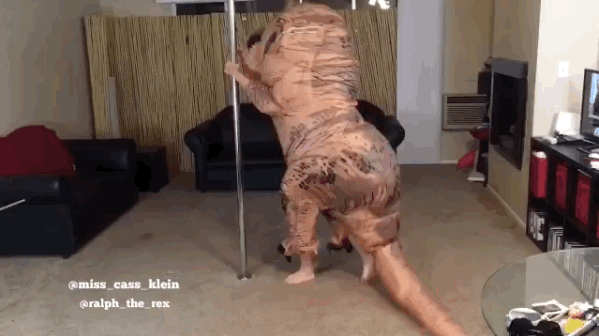
9. I THOUGHT I WAS ABNORMAL
When I first masturbated at the age of 17, it was because I was curious, and wanted to know what feeling 'sexually satisfied' felt like. I'd only heard of guys doing it and that made me think that I was 'abnormal' because I, a female, also had sexual urges. And even though I enjoyed it, I also felt guilty. I felt like I was doing something 'wrong'. My parents never talked to me about it, so I automatically assumed that it was something clandestine. - Cheryl, 2710. A STOOL AND A TOILET ROLL
I was 11 and simply curious and interested. So I tried to f**k the hole in the stool. Didn’t work. Tried to use a toilet roll, didn’t really work too. Tried my hand, finally worked. But after that it felt weird and I thought that I needed to pee. Oh, and I also felt dirty. - Daniel, 24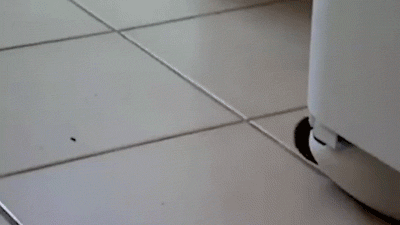
WHY THE GUILT?
A lot of these stories have one thing in common - the feeling of guilt. Many of these stories end with the individual feeling dirty or ashamed. For some of us, our religion tells us that it's a sin. For others, the fear of our parents finding out fills us with shame. Perhaps it's because of the fact that it happens in private, we feel that it's something that should be hidden. And because no one talks about it, there's no one to tell us if it's right or wrong. Maybe it's too hopeful to think that we can start talking about masturbation openly, but we could begin with asking ourselves why we feel guilty, and if that guilt even makes sense to us. If there's nothing about masturbation that rubs us the wrong way, isn't it better if we could find a way to work through the guilt and enjoy this 'pastime'? Also read: Is There A Need For Better Sex Education That's More Than STDs And Abstinence?Growing Up In A Different World
Unlike average Singaporeans, Crow never had a proper family growing up. Neither did he really have a home. Home was wherever the person his single mother paid to look after him stayed, for she had to slog day and night to support him and his stepbrother.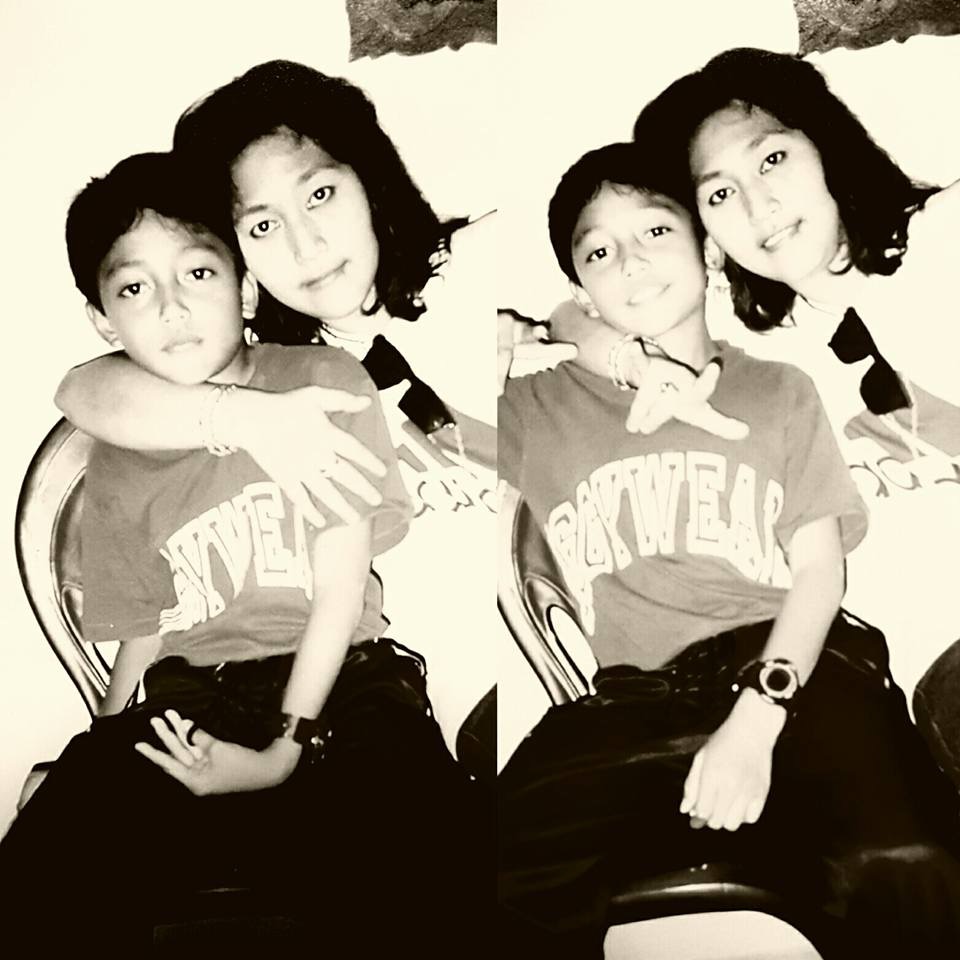
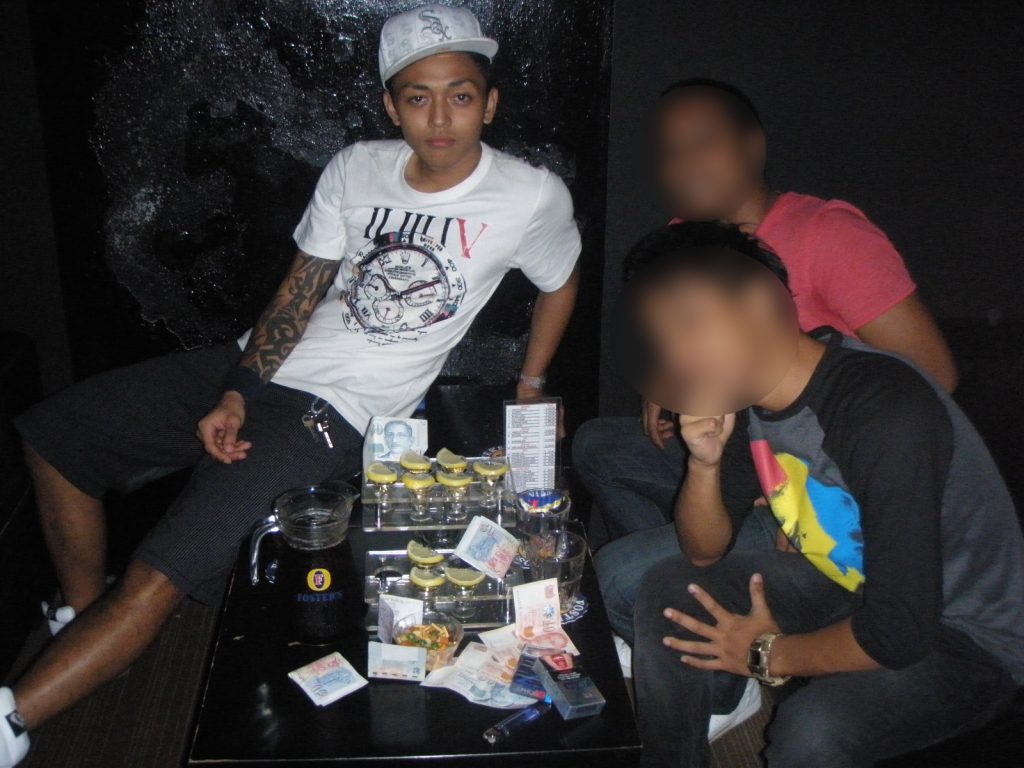
The First Changing Point
Things took a turn when Crow was 19. After surviving from a fight that left him with injuries so bad he was admitted to the ICU, and seeing his crying mother at the foot of his bed, the mother and child reconciled. That moment brought back long lost feelings of love and concern that he had always longed for from her. Their relationship improved but just four months after, she passed away from a sudden illness.“It felt like the world just stopped.”It was at that point that Crow started reflecting and decided to leave the gang. At 19 and serving NS however, it wasn’t long before Crow found himself back in the predicament of going back to his old days due to financial pressures. With $350 of his $520 monthly allowance going towards the rental of his mum’s flat, the remaining was barely enough to cover utilities, food, and transport among other expenses.
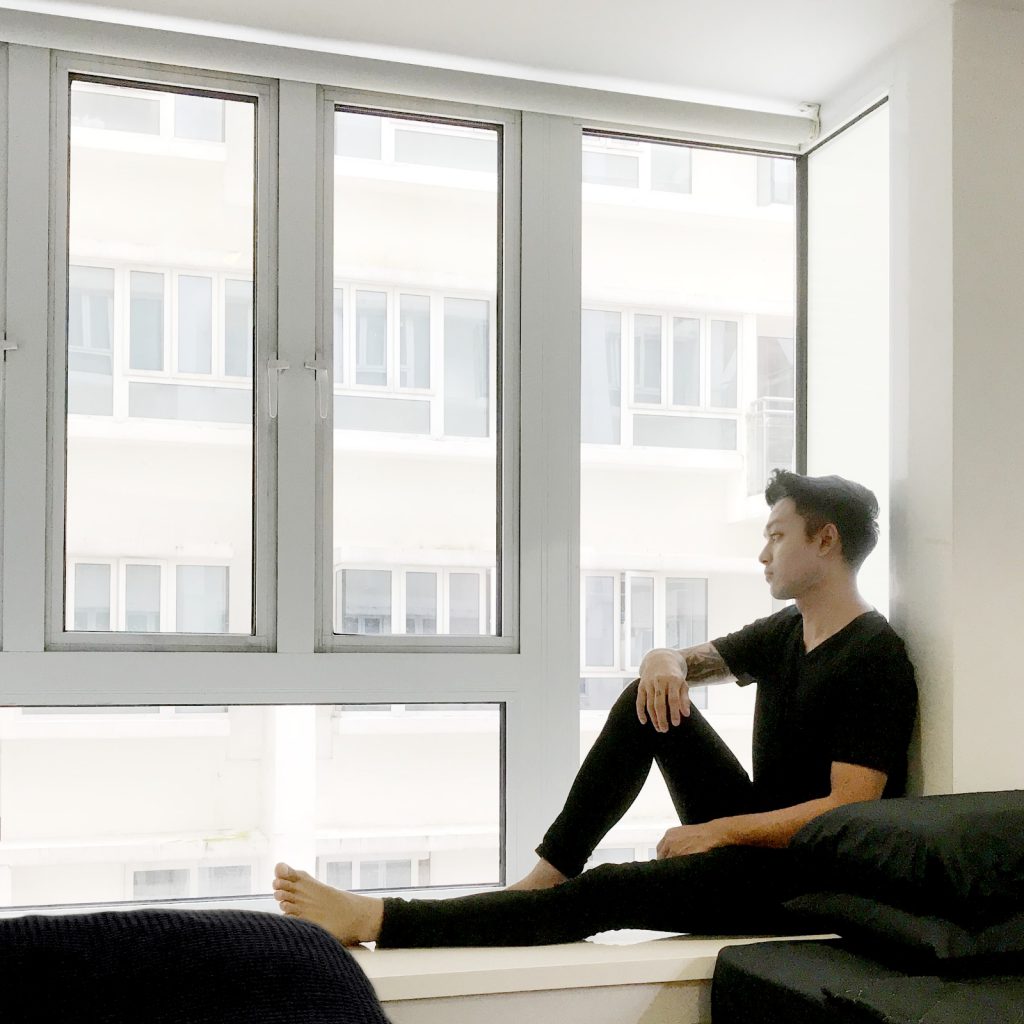 He started selling cigarettes to earn and eventually succumbed to selling drugs when the bills piled up. One thing led to the other and he was soon back in his old gang. This time round, as a headman of a particular territory with over 20 boys under him.
He started selling cigarettes to earn and eventually succumbed to selling drugs when the bills piled up. One thing led to the other and he was soon back in his old gang. This time round, as a headman of a particular territory with over 20 boys under him.
The Law Caught Up
Things started going South when a huge fight left one of his gang members dead. Knowing that the investigations will lead the police to him, he went into hiding at various hotels and friends’ houses. He was caught in the end, along with all his boys when they were celebrating Ramadan back in his rental home. Detained by MHA under the Criminal Law Act and sent to prison immediately with no release date came as a shock to Crow at first.“I knew what I was doing wasn’t right but I never imagined actually being in prison.”Prison life was undoubtedly hard and it took him more than a year to accustom himself to the new life. Facing four walls all day, losing the freedom to do what he wants to do, and having to perform the same routine over and over again was a huge mental challenge. The hardest part, however, is that there was no ‘end date’ to all of that because he did not know when he was going to be released, or whether he was even going to be released. Many times, Crow had to distract himself from such depressing thoughts by doing things he never would have done prior, like reading. Disgruntled by how the legislation could lock anyone up without any release date, he decided to ‘take revenge’, “I was thinking that since they are going to do this to me, fine, I will take full advantage of whatever facilities or resources they have.” Who knew that that motivation was what became the turning point of Crow’s life.
 After getting into Prison School and realising that he could actually do anything well if he puts his mind to it, he went on to complete his O-levels and A-levels there. Most of all, as he was exposed to more knowledge, he begin to realise what he wanted to do when he gets out.
“I want to be a better me, to do good things for myself and for people. If not for myself, I owe it to all my loved ones who have visited me to do so.”
After getting into Prison School and realising that he could actually do anything well if he puts his mind to it, he went on to complete his O-levels and A-levels there. Most of all, as he was exposed to more knowledge, he begin to realise what he wanted to do when he gets out.
“I want to be a better me, to do good things for myself and for people. If not for myself, I owe it to all my loved ones who have visited me to do so.”
Letting Bygones Be Bygones
After six years, Crow finally got his second chance in life. Leaving prison and his past behind in 2016, he decided to use what he experienced and channel his learnings towards touching the lives of people through music.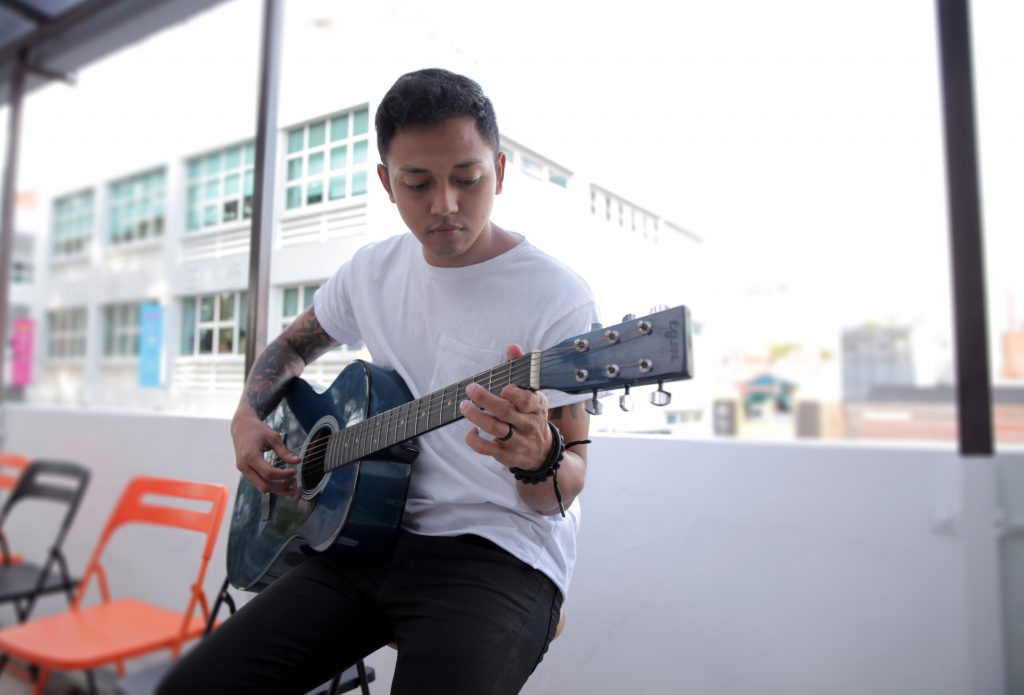

KIDS WILL BECOME UNPRODUCTIVE
Let’s think about our own childhood for a moment and try to remember a time we studied because we genuinely wanted to study. Chances are, the only time we studied that diligently was when we had to for exams.
"Exam period was the only time I could get my son to study properly. It’s going to be hard to get him to study now." - Lavenia, parent of 7-year-old in P1Like NTB2DO in the screen capture above, several users on the HardwareZone forum have been discussing the move since MOE’s announcement. While a handful of these users were just complacent Singaporeans without children, just eager to put their opinions out there, there is an abundance of those who shared their legit concerns on what this would mean for their children’s future. We cannot expect children (or anyone) to enjoy taking exams, but it’s undeniable that exams have significantly pushed many children to be a little bit more disciplined and studious. We also can’t deny the amount of distractions kids have these days. Back when millennials were children ourselves, all we had were our Barbie dolls, Game Boy and a handful of other toys and we still managed to get distracted. Just look at how many distractions kids have today. “I’m definitely worried that my son will spend more time playing more games and what not," says Lavenia. Could this mean more pressure for parents to supervise their children?
UNPREPAREDNESS WILL LEAD TO STRESS
One of the reasons behind removing exams for P1 and P2 is to remove unnecessary stress that we’re embedding into young children. However, I call bullshit on the idea that having exams at that age causes unnecessary stress to children. Exams aren’t the main cause of stress in a child. Try and recall if you felt stress at taking exams at that age. Unless you had a tiger mom or dad, you probably didn’t feel any overwhelming amount of stress from exams. HardwareZone user NTB2DO gives us another great example:
“I would want my daughter to be exposed to going through an exam in P1 or P2 at least, because she’d have more time to warm-up before her streaming year.” – Ilena, parent of a child enrolling into P1 next yearWith the pressure from their parents, coupled with how they're going to be introduced to 'the exam environment', students could find themselves in a more stressful situation than before.
DOESN’T CHANGE THE ‘GRADES ARE EVERYTHING’ MINDSET
It’s no secret that most Singaporeans highly value academic success, and while MOE has good intentions, the recent change will not fully address the “kiasu” mentality instilled within Singaporeans. The mentality that grades and academic growth triumphs everything else. Exams or no exams, we’ve grown up associating success with how well we do in school. We grew up having our parents, teachers, and society as a whole assess us based on our academic qualifications. Let’s face it, these children will still be assessed this way when they eventually progress to their last years in primary and secondary school and so on. And the best way to achieve the As to get them to their ‘ideal schools’ is still by mugging and memorising pages and pages of information. Because the better your memory, the higher your likelihood of scoring an A, right? To make things worse, who can forget how our parents just had to compare us to our siblings, friends, cousins and even neighbours when we 'didn't do as well’. This 'tradition' lives on even until today, and it isn’t just the children. Parents are feeling the pressure themselves.“I feel intense pressure coming from kiasu parents all around me. The competitive academic culture and the pressures that it places on parents and thus on children are very real.” - Germaine, parent of a child enrolling into P1 next yearAccording to Germaine, parents around her are sending their kids for enrichment classes that teach them to read, spell, and solve math problems way before the enter primary school. Everyone wants their child to be the best in the race, and this consequently contradicts MOE’s stance of wanting to focus more on kids’ personal development over academics in the first two years of primary school.
“If parents and teachers continue to stress over the consequences of not getting good grades, we’ll be right back where we started.” - Esther, parent of 7-year-old in P1
A GOOD FIRST STEP, WITH ROOM FOR IMPROVEMENT
While MOE’s latest move is commendable, it’s a shame that it just may not be enough. Yes, taking away exams lets kids be kids a little longer. Yes, removing rankings from report cards do help to discourage comparisons amongst peers. And yes, there shouldn’t be emphasis on grades down to the decimal point. But in an education system that deems a student a failure solely based on their grades, change doesn’t happen overnight. These are great initial steps but to truly make a change, MOE and parents have to unite and understand each others concerns as well. Be it changing the curriculum to include more experiential learning methods, or overhauling the entire education system, whatever step MOE decides to take next, it must take into consideration not only how it affects schools and students, but how it affects parents. Only when the changes address the prevailing concerns then will Singaporeans be convinced that there will be real change. Also read, In Defense Of My Arts Degree: Why The Arts Are Absolutely Essential (Header Photo by pan xiaozhen on Unsplash)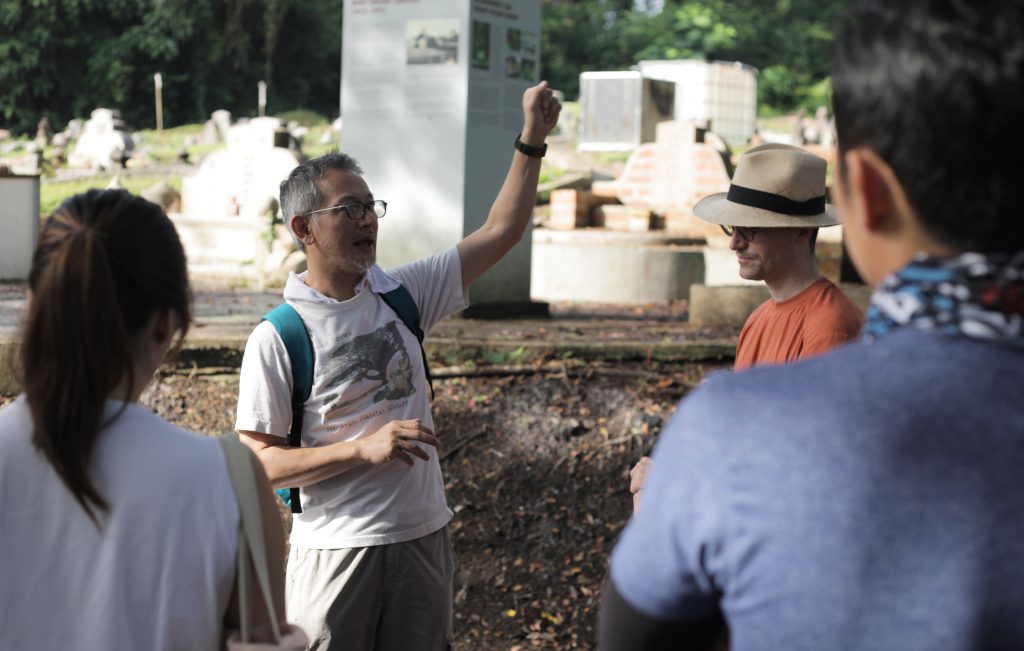

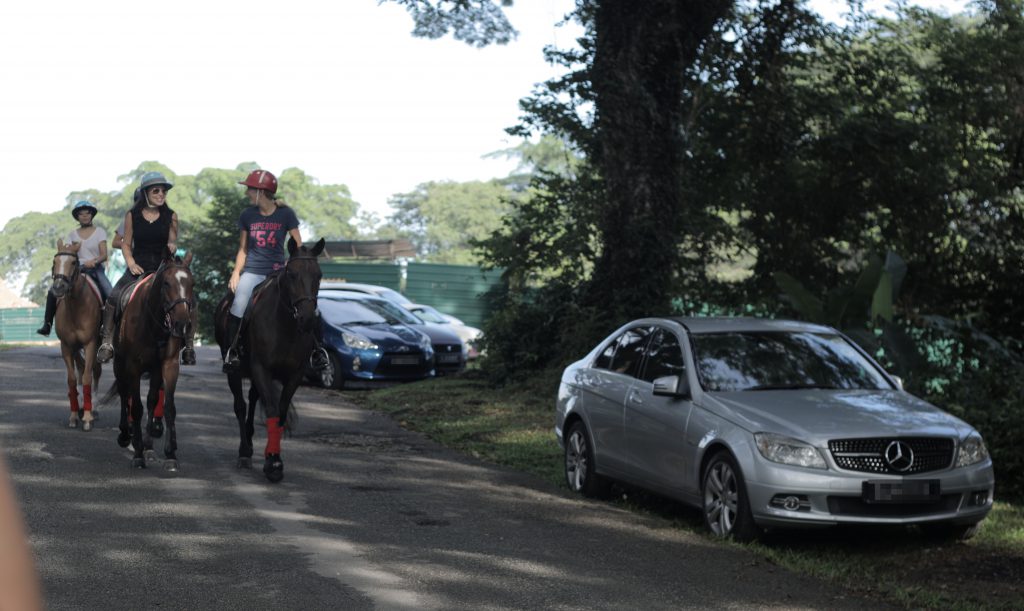
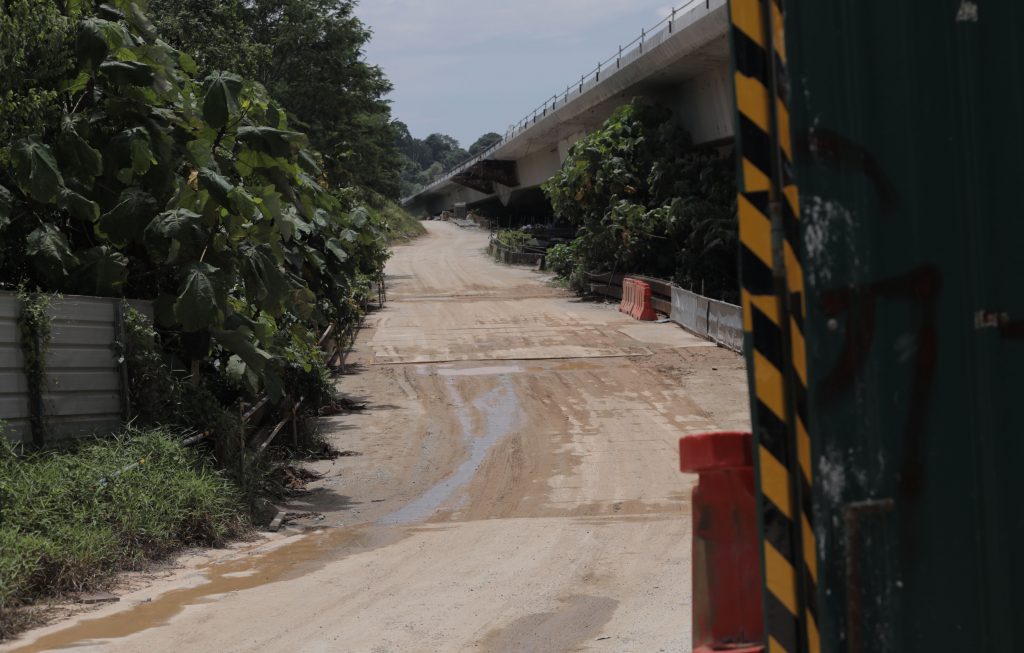
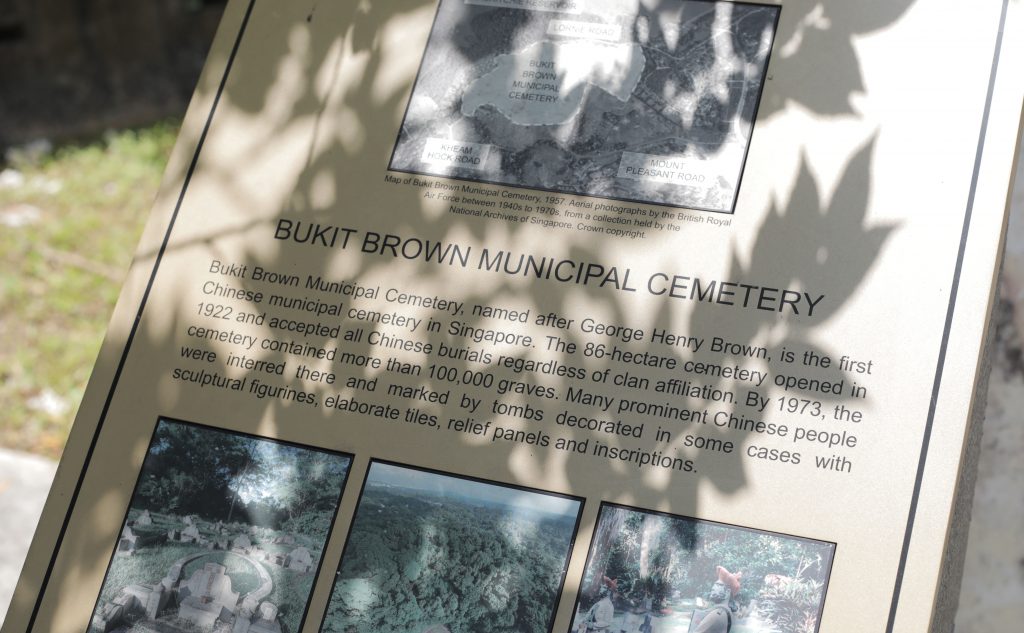
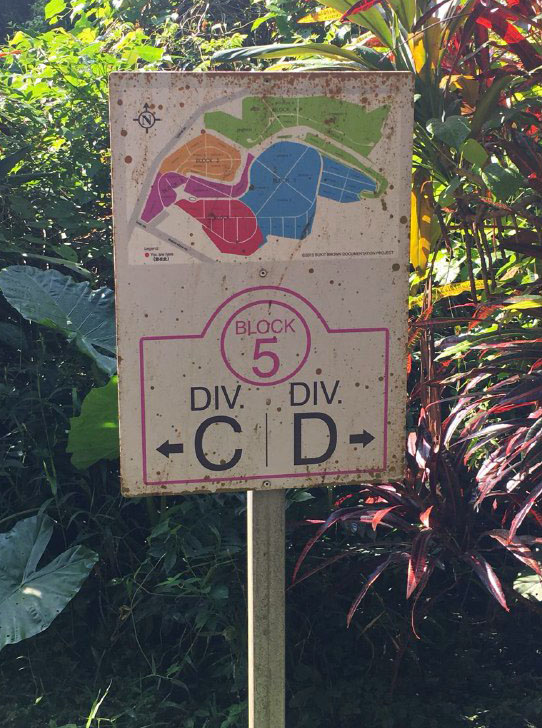
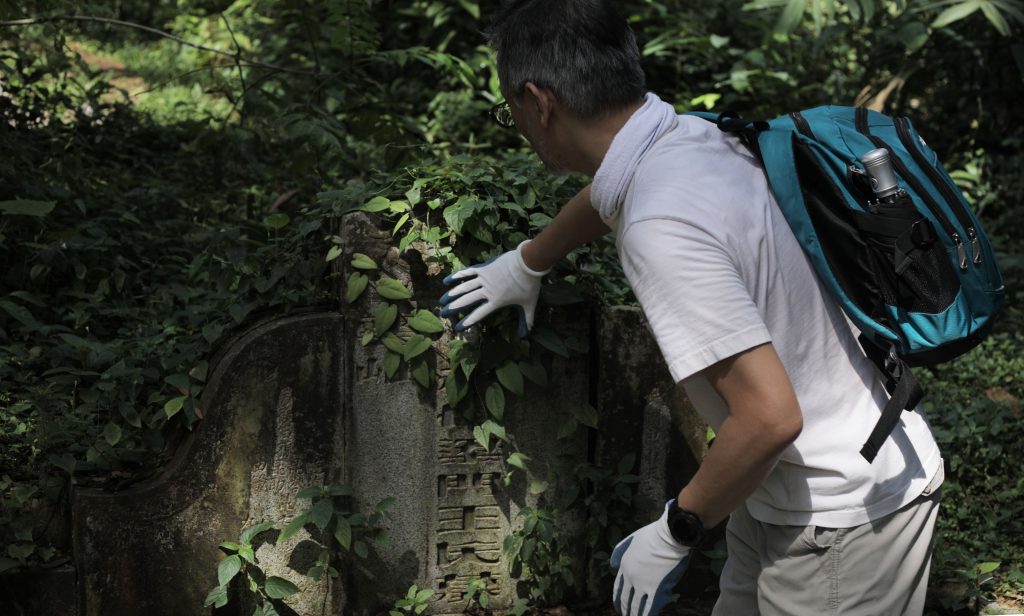
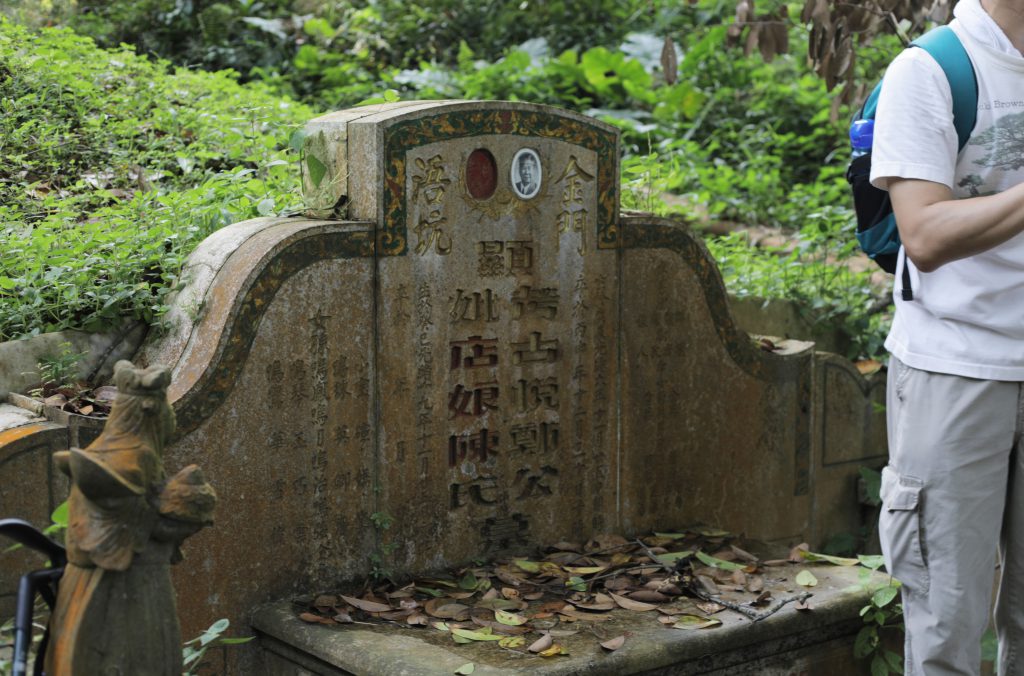
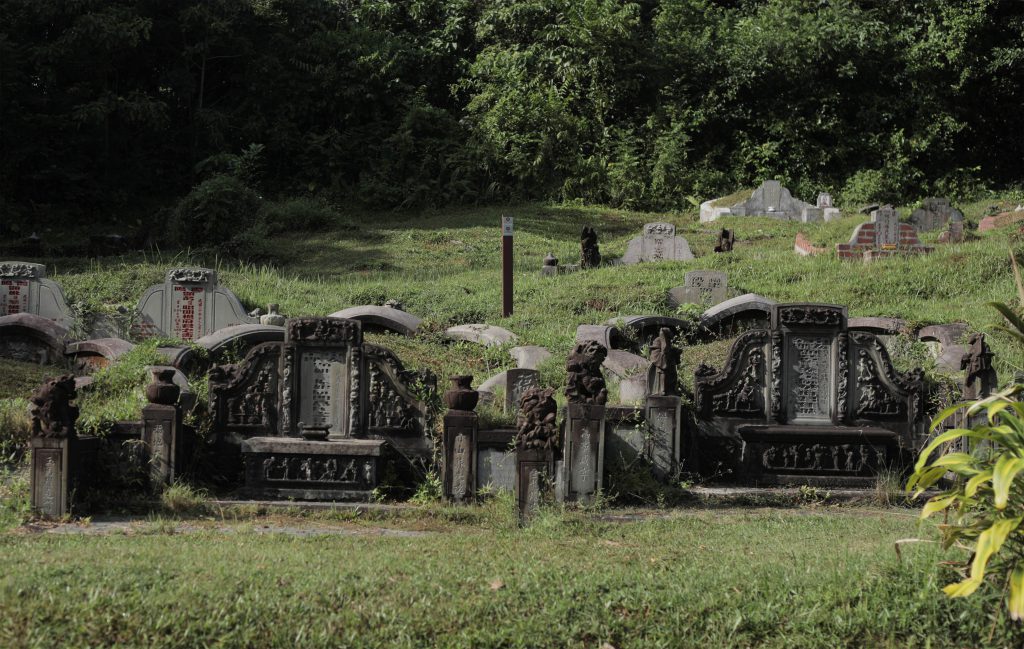
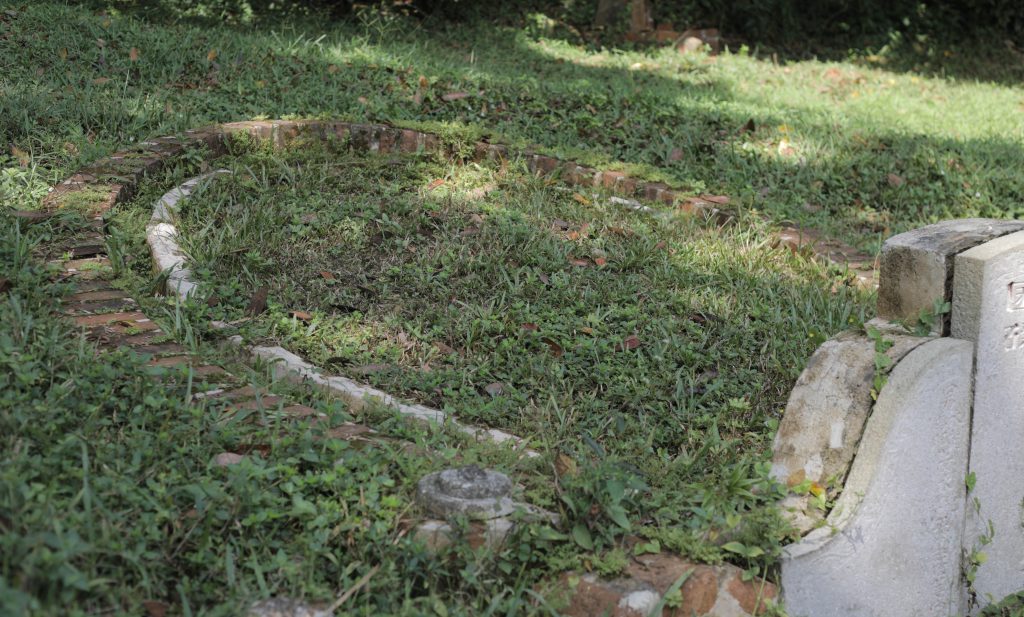
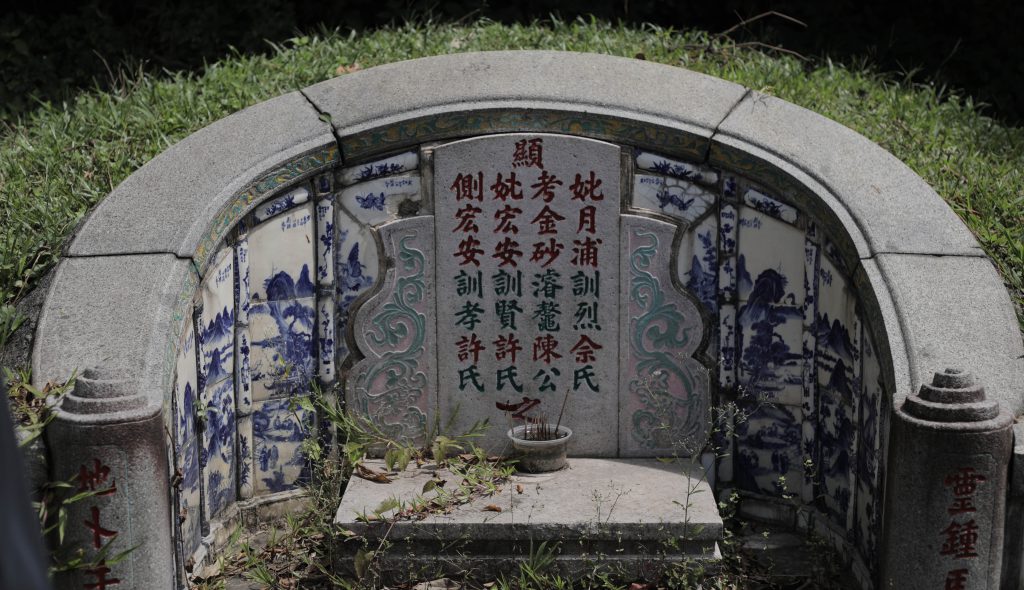
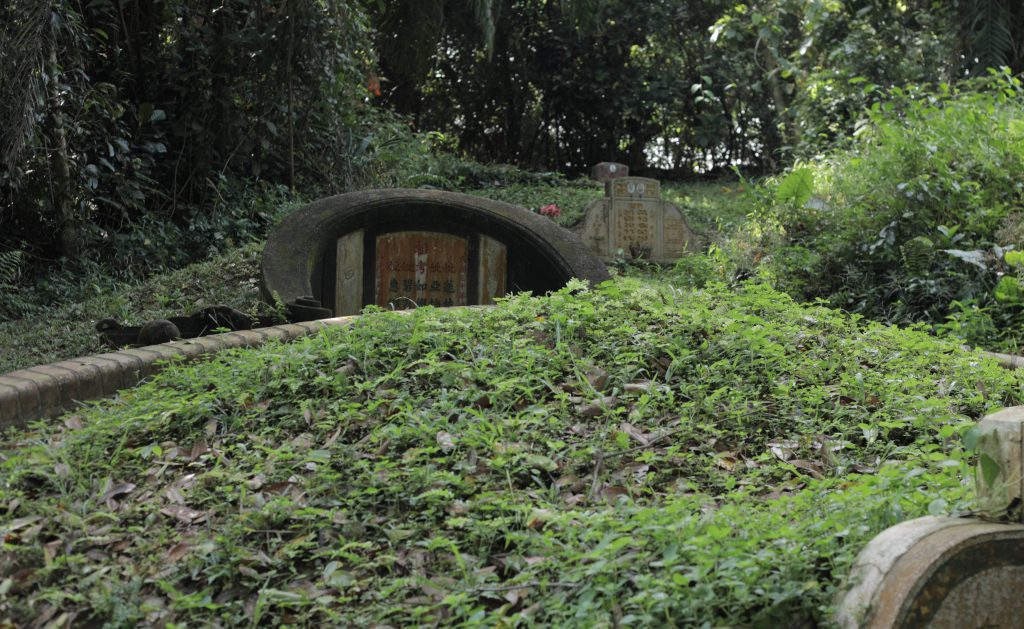
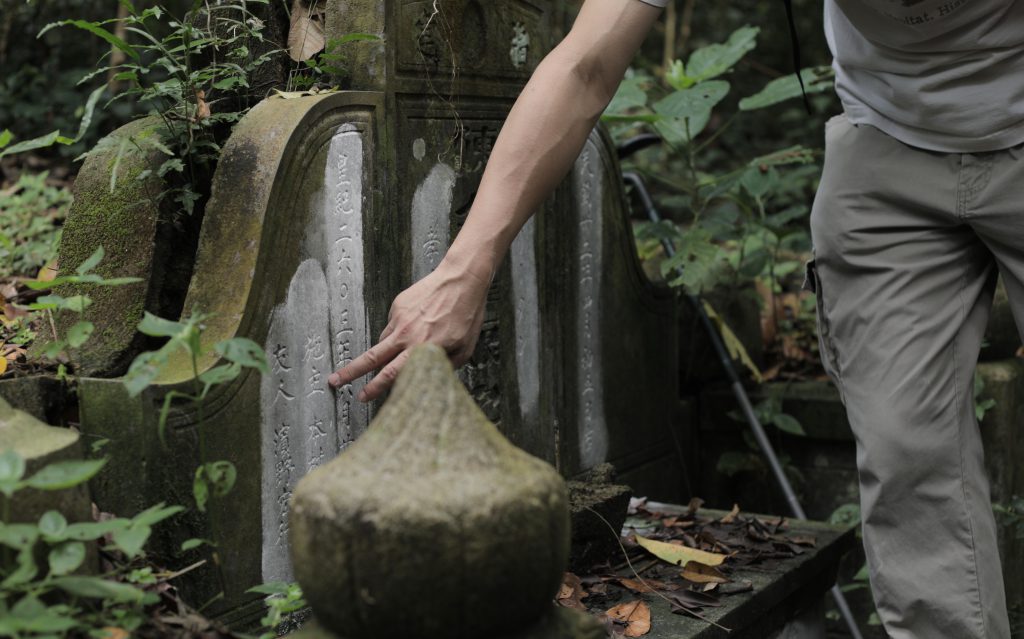
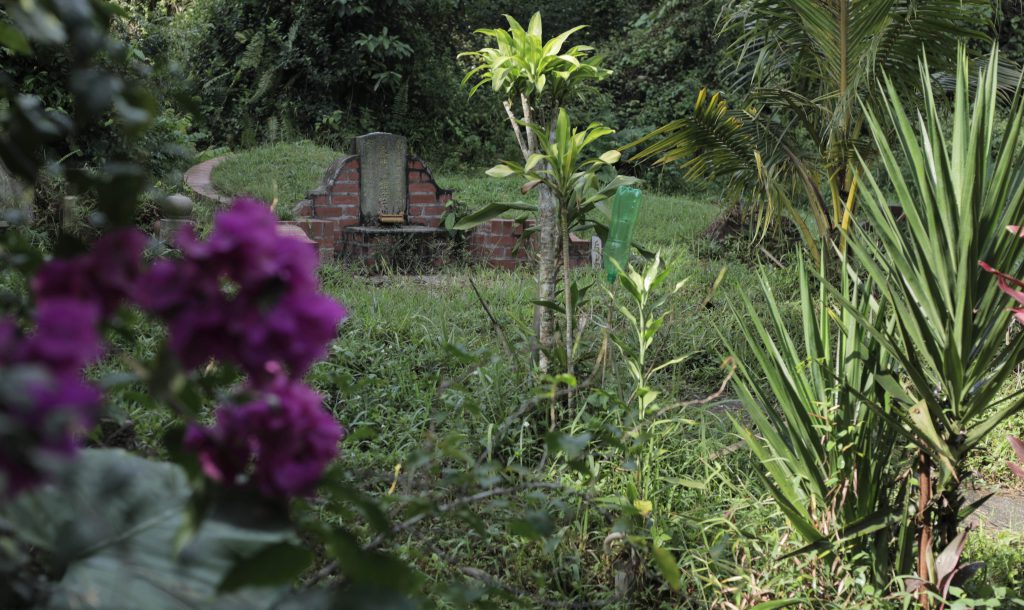 I got a glimpse into what was life back in the 1940s, of the challenges that some of these people faced and the brutality of living in the period of a World War. I'd be lying if I said I can relate to the struggles these people faced, because I can't. But the stories that Darren regaled us with made me better understand how our culture and society came to be, and better appreciate the luxuries we enjoy today. Although I am not converted to be a lover of cemeteries, I do have a new-found appreciation of it.
To think that I’m born and bred in Singapore but knew nothing about our local cemetery and its stories, and it takes Darren, a Malaysian, to school me.
It put things into perspective and I understood a little more about why people fought for the preservation of Bukit Brown. I was one who couldn’t care less when plans of Lornie Highway and further redevelopment of the area were announced. But now that I’ve seen the tombs and heard the stories, I know the importance of preservation and conservation.
Urbanisation is important for the progress of a nation, but if come one day where all of such historical or heritage sites like Bukit Brown had to make way for progress, I think it to be a truly sad day.
Also read, With Anti-Trump Protests Around The World, These Causes Closer To Home Are Also Worth Paying Attention To.
I got a glimpse into what was life back in the 1940s, of the challenges that some of these people faced and the brutality of living in the period of a World War. I'd be lying if I said I can relate to the struggles these people faced, because I can't. But the stories that Darren regaled us with made me better understand how our culture and society came to be, and better appreciate the luxuries we enjoy today. Although I am not converted to be a lover of cemeteries, I do have a new-found appreciation of it.
To think that I’m born and bred in Singapore but knew nothing about our local cemetery and its stories, and it takes Darren, a Malaysian, to school me.
It put things into perspective and I understood a little more about why people fought for the preservation of Bukit Brown. I was one who couldn’t care less when plans of Lornie Highway and further redevelopment of the area were announced. But now that I’ve seen the tombs and heard the stories, I know the importance of preservation and conservation.
Urbanisation is important for the progress of a nation, but if come one day where all of such historical or heritage sites like Bukit Brown had to make way for progress, I think it to be a truly sad day.
Also read, With Anti-Trump Protests Around The World, These Causes Closer To Home Are Also Worth Paying Attention To."The Grass Is Greener On The Other Side"For many millennials, studying or working overseas are opportunities we wish to experience at least once in our life. Cold weather, a slower pace of life, the freedom, and the impression of a generally better employment package are things we associate with life abroad. Also, who can pass up on the chance to travel and explore a bit of the world under the guise of study or work? In fact, a study released in July where 1000 Singaporean citizens and PRs were surveyed, seven in 10 (69%) want to work remotely to travel the world, and 85% of them would like to live abroad for some time. Unsurprising, considering how many wanderlusters you will find just by browsing through Instagram profiles.
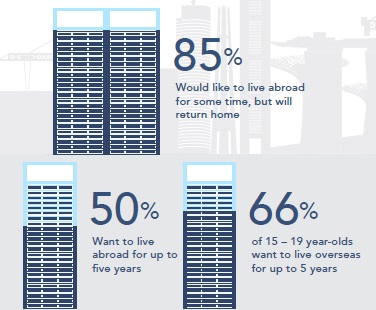
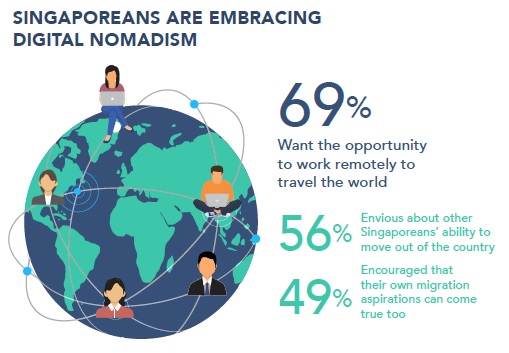
69% want opportunity to work remotely to travel the world
74% of these are younger Singaporeans - 15 to 34-year-olds
How Green Is The Grass On The Other Side?
1. Farhan - 3.5 Years In Thailand
After working in Thailand for 3.5 years as a project engineer, Farhan decided to quit and move back to Singapore following the end of his project.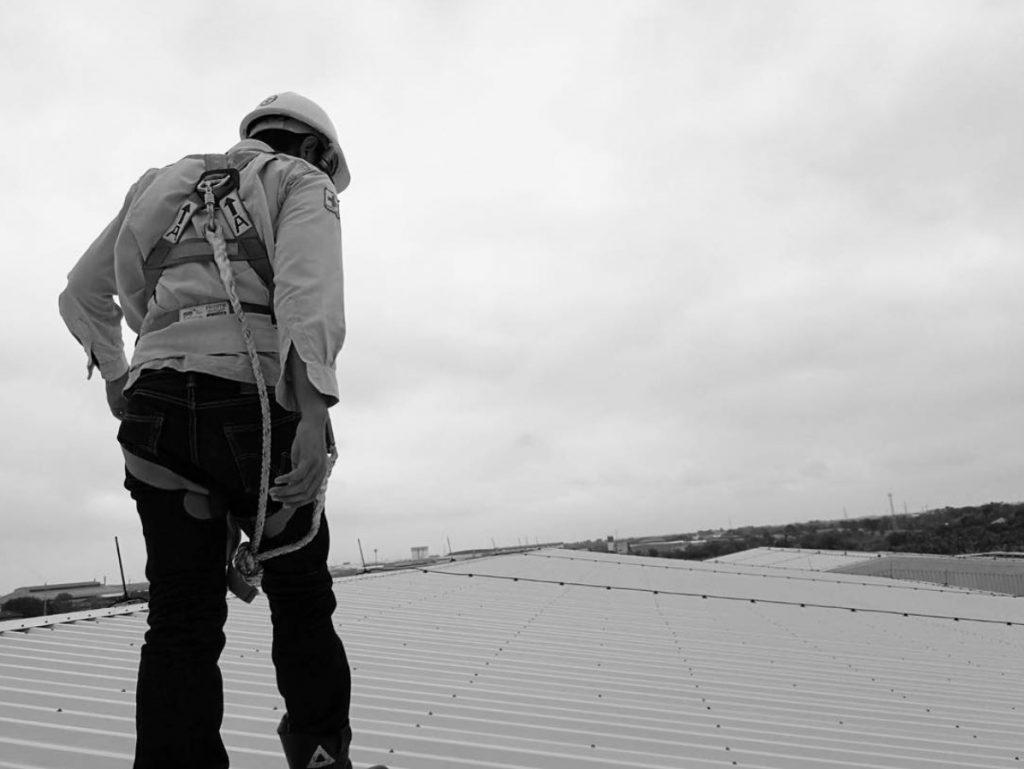

2. RT - 3 years in UK
RT just came back from her completing her degree in the UK. What are the perks of living abroad? Life is a lot quieter, more chill, and university life in the UK isn’t as intense as local universities - I would imagine. I also really liked the freedom that came with not living with my parents, the ability to go back anytime and not having to worry about reporting to anyone.And the downsides?
Being away from my parents also meant that Mum wasn’t around to help me solve my problems anymore. I learnt to appreciate the basic things in Singapore like fast internet speeds, convenient public transport and food. What are some important factors that people should consider before moving abroad? It is all the little things you don’t think about until you’re there. You have to be mentally ready to miss out on all the important events back at home, like gatherings or not being able to watch your baby relative grow up. Or the internet speed: The average internet speed in the UK is 16.5mbps, while it’s 180mbps in Singapore. Then there’s culture, safety and security. Live here or live abroad? I have thought about migrating because of the high costs of living in Singapore. I feel like we’ve stagnated in growth as a country while everything is becoming increasingly expensive. I may be wrong but at least that’s my general feeling about life in Singapore. For now, I’m staying here as I just came back from UK and do want to spend time with my family.3. C - 4 years in UK
C also recently came back after completing his degree in the UK, where he spent one year in London and three years in Manchester. What are the perks of living abroad? The best part about living abroad is getting to experience cold most of the year, at least for where I lived at.
4. Jasmin - Migrated to Perth 11 years ago
Jasmin moved to Perth, Western Australia in 2002 to pursue her dream of becoming a veterinarian. She stayed there permanently after graduating in 2007. What are the perks of living abroad? Life in Perth is pretty slow-paced and relaxed compared to Singapore. The people here are more interested in enjoying life in the present than slogging away or planning for the future. Most people are friendly and strangers would often strike up conversations with you. And the downsides? Singapore is a lot more convenient than Perth in so many ways, like public transportation, shopping, and getting food. The biggest challenge is being so far away from my friends and family, especially my parents. It’s hard to keep up with friendships and relationships, especially when life gets busy.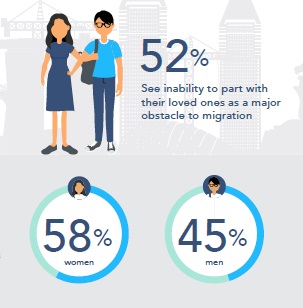
More than half surveyed will not migrate because their loved ones are in Singapore
To Migrate Or Not To Migrate
As much as we love to think that life overseas is all beautiful and perfect, that isn't always the case. Just like the many issues we face in our life in Singapore, there are bound to be challenges wherever else you go. Instead of living in a dream of that Great Migration, know what you are in for first. Weigh the pros and cons for yourself, and if you do find someone else more perfect for you, good for you. (Share it with us) Also read: A Millennial’s Reply To Minister Ng’s Open Letter: “Nobody Owes Us A Living”. (Header Photo by Slava Bowman on Unsplash)Attributing her strength to her religion, Mdm Rebecca emphasised on how a positive mindset helped tide her through the hardships. “Life is temporary and all these challenges are part of life. I don’t cry easily because crying doesn’t change anything. I just do my best with what I have and I pray for the best.” As I chatted with Mdm Rebecca at her doorstep while volunteers from the Young NTUC- North East CDC Project Refresh were cleaning up her unit and giving the walls a fresh coat of paint, I couldn’t help but admire her for her resilience.“My mother had already suffered. I don’t want my cousin to go through the pain of what my mother had to go through.”
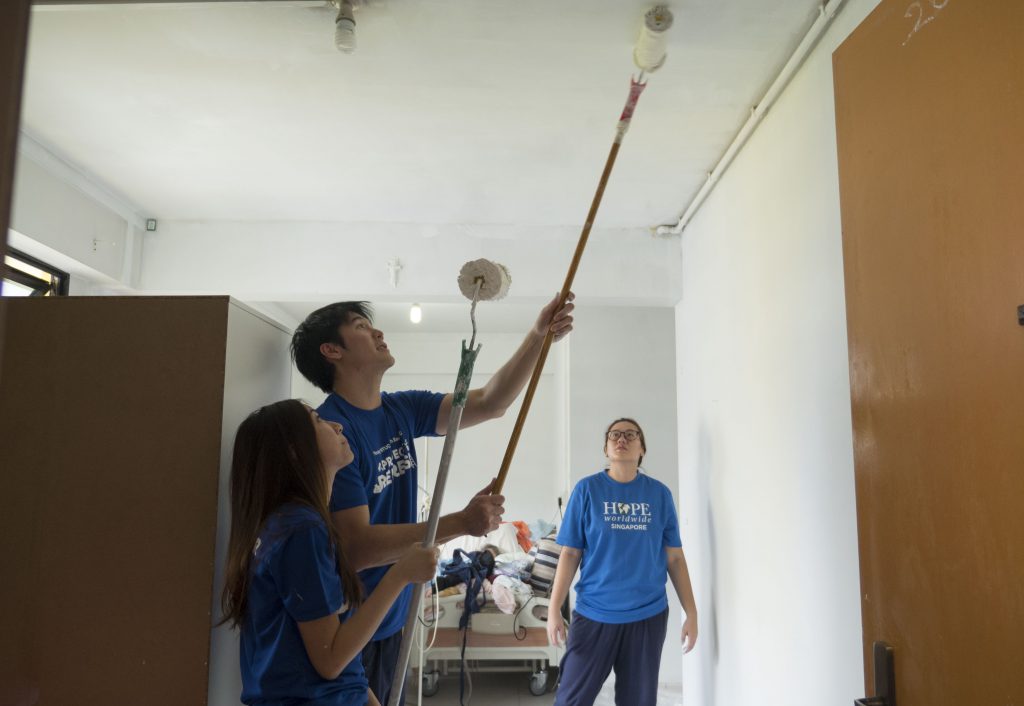
Her fizzy, greyed hair and gaunt face tells of a woman who is still facing adversity, but Mdm Rebecca’s strong spirit is refreshing and humbling. She spoke about helping neighbours in need and counselling her friends and their children. Her empathy in prioritising other people’s problems above so many of her own made me feel a mix of guilt and respect.
Having come from a relatively privileged middle-class background, I couldn't comprehend the significance of her struggles until I stepped into her home. Mdm Rebecca’s home is about as big as a typical HDB flat’s living room, with a small corner as kitchen and a toilet right beside it. The only bed in the flat is taken up by her cousin.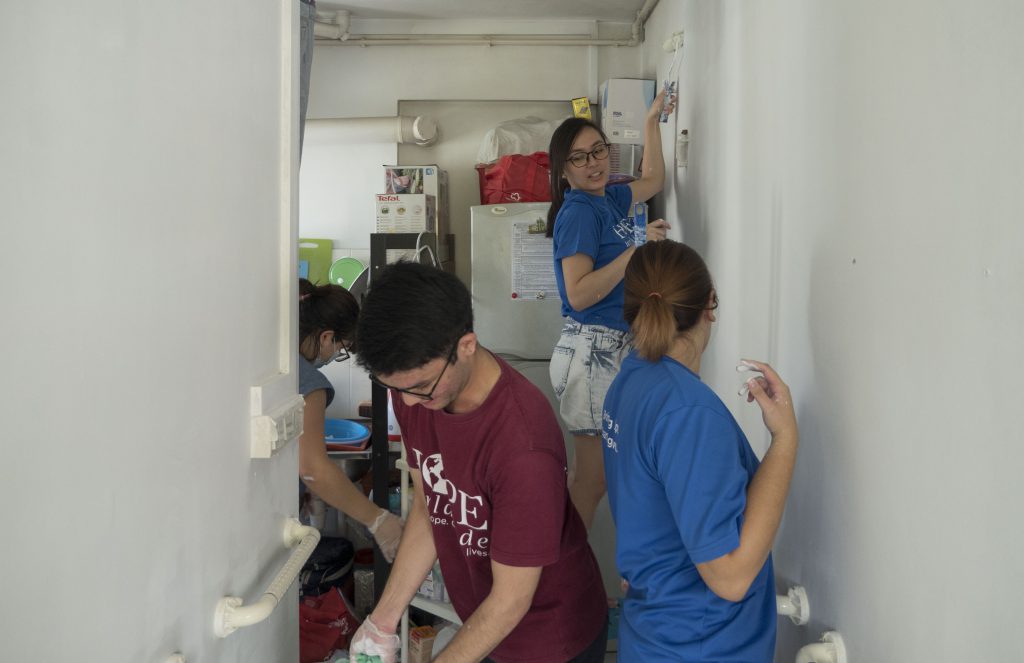
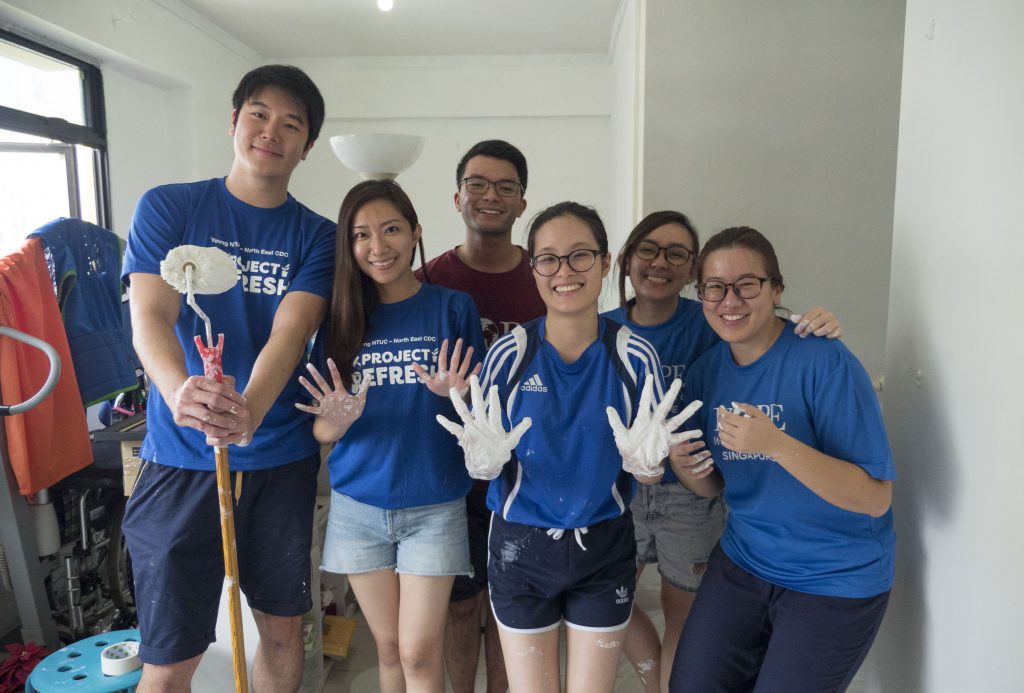
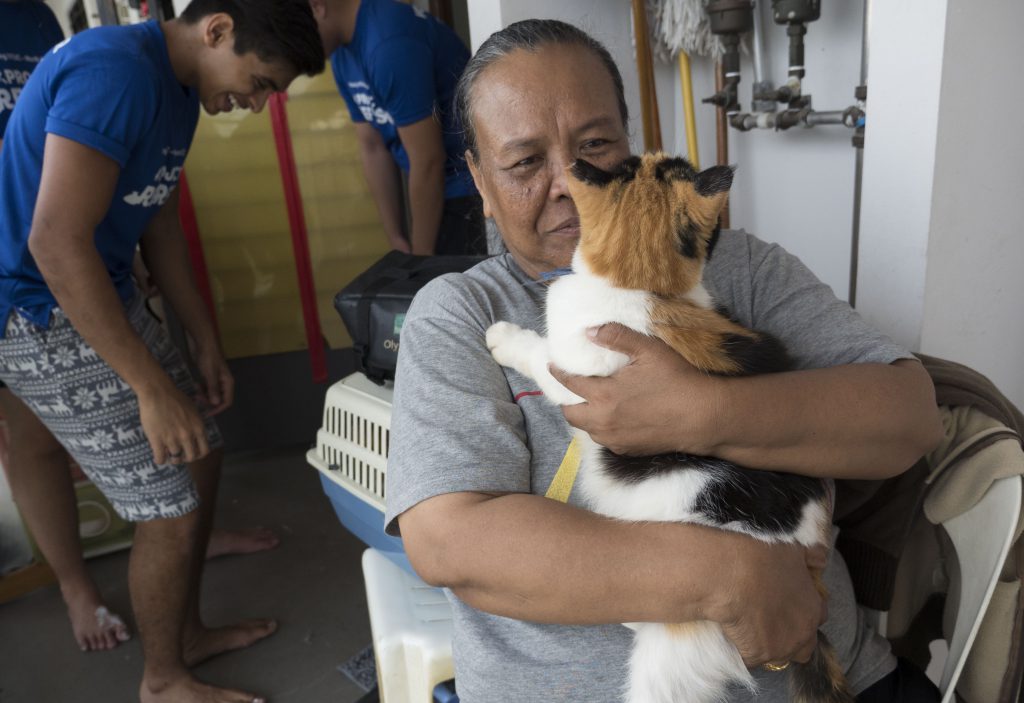
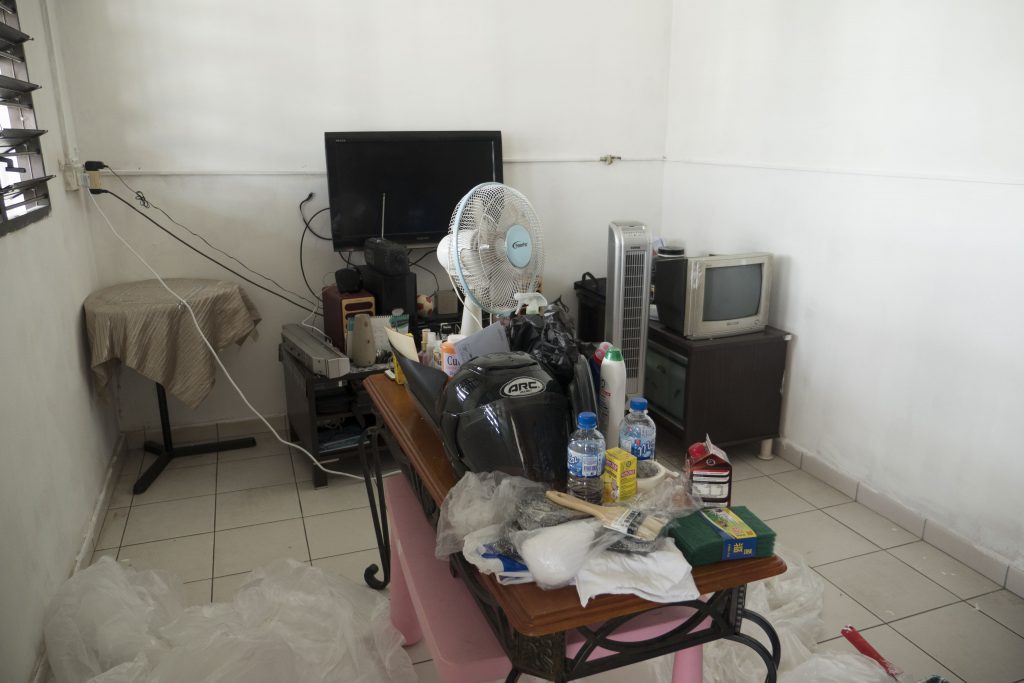
Volunteer with Young NTUC
As millennials, we tend to procrastinate volunteering as much as we want to give back to society. But today, there are many volunteering opportunities available. Besides Project Refresh, there is also the Young NTUC U Heart, which lets you decide your own do-good projects for low-income families, the environment, for workers, the elderly or people with disabilities, and children or youth-at-risk. So you get to dictate the kind of change you want to make! Learn more about Young NTUC’s volunteering programmes here! * Name has been changed for privacy reasons This post is written in partnership with Young NTUC. Also read: To The Generations Before Us – Trust The Millennials With Singapore’s Future.TL;DR
SGInstaBabes launched a subscription campaign that grants subscribers with a range of ‘benefits’ depending on the tier of subscription one pays for. For example, paying US$7.50 (approx. S$10) a month will grant one exclusive access to photo shoot albums, and the highest tier will grant one “Ultimate Sugar Daddy” the perk of a private yacht party with the girls at a price of S$5000. The campaign came under fire for multiple reasons: it’s questionable purpose of crowdfunding, the dubious ‘perks’ that seem to be a hotbed for sexual predatory behaviours, and the impression that the campaign is further objectifying and ‘selling’ girls who look underaged. As with all social media dramas, founder of SGInstaBabes, Wee Kiat’s not-so-decent history of controversies has also been unearthed following the uproar over the Patreon campaign. In 2011, nude photos of Wee Kiat and his ex were leaked. Then, just last year, Wee Kiat came under scrutiny again when he was accused of molesting an underaged girl at a music festival.Although Wee Kiat claims that the Patreon page was started due to overwhelming feedback from their fans, his unfortunate history coupled with the ‘pay to get exclusive photos or time with our girls’ campaign messaging was undoubtedly a recipe for disaster. In an attempt to address the negative allegations against him, one of Wee Kiat’s reply was: “Funny thing is, those who are perverting my intentions aren’t the girls I work with and see me and know me. Heck, they aren’t even people who follow SgInstaBabes and have seen the stories and posts we made. They are people who are here because of drama and made assumptions based on shallow judgments. And they don’t care about the accuracy of what they say. They just wanna jump on the bandwagon. Hence, empty vessels make the most noise.”
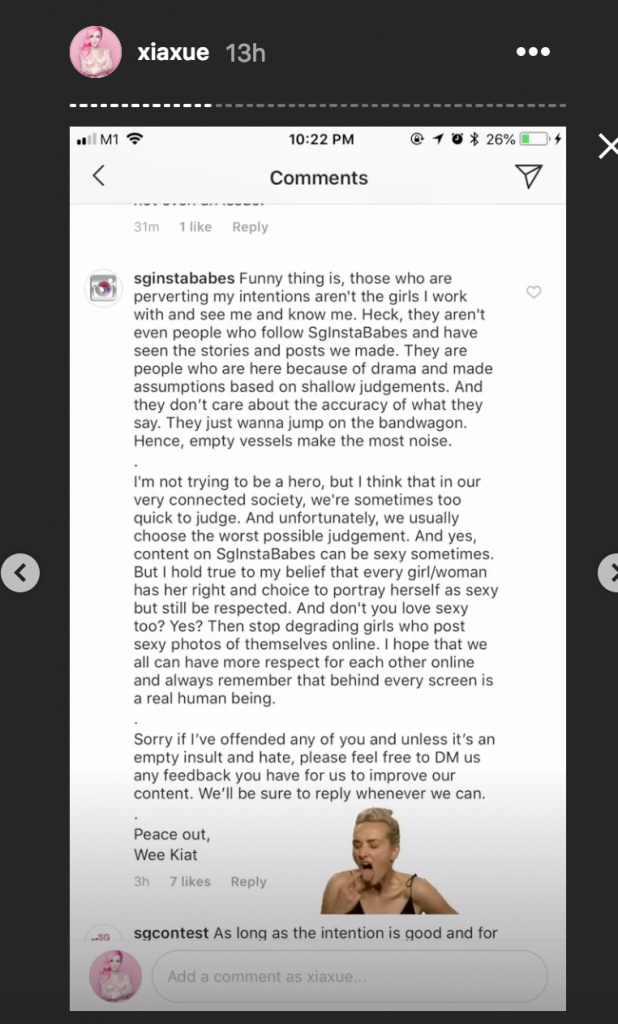
“He’s very good with words”
“I was part of SGInstaBabes for awhile but left because I heard a lot of shit about Wee Kiat. I personally don’t think he’s very trustworthy at all! From my few experiences with him, I would say he is very good at convincing people. There were a few events I didn’t want to participate in but he was so good with words that he was able to convince me to do it. So if you’re talking about whether the girls in the group are really doing it willingly or ‘psychoed’ to do so, I think it’s very hard to tell. One thing for sure, he is super touchy. The few times I met him, he always tried to hug me and touch my waist. This contributes to the doubts we girls have in terms of sexual activity with him, especially when there are always parties and alcohol involved. Personally, I think the Patreon campaign is totally redundant and stupid. They are just making use of the girls to ‘create content’. From what I know, a lot of girls (I know a friend who is still in SGInstaBabes) has been starting to back out because they don’t want to get involved in the campaign. It shows how the campaign is actually not approved by many of the girls themselves.” - E, 19“He’s a low-key manipulative person”
“In 2014 to 2015, Wee Kiat asked me to join his team multiple times but I always declined him. That didn’t stop him from pestering me with the same question. I was around 16 to 17 back then and even after more than three years, this cycle hasn't stopped. I’ve worked with him separately on a couple of events and I regret ever doing so because since then I’ve been constantly linked to the brand. Even after constant objections against such association, Wee Kiat still has no qualms continuing on. I even found my photos being circulated on their page without my permission. It’s degrading and if he cannot understand my ‘no’s, it really shows how the entire brand works. Wee Kiat is generally a nice person but he just doesn’t take objections even after very clear explanations. He would try to convince me by boasting about his social media marketing experience and telling me that there’s only “so far you can achieve alone”. He just cannot understand that I have no goal to rush for success or fame on a social media platform. I have never been too close with the team and never tried to associate myself with the girls too much. However, I have chatted with some of the ex-members who left with certain degrees of unhappiness from Wee Kiat’s attitude. To summarise, these girls who left just don’t want to be seen as a joke anymore. To be fair, Wee Kiat is actually pretty kind as a friend. When my nudes got leaked he was one of the few people who checked in on me and asked me about my well-being. However, I can’t deny that he is a determined and low-key manipulative person.” - L, 20 In Wee Kiat’s attempt to convince L into doing a nude photoshoot with SGInstaBabes (him), he had also sent the nudes of another girl he has shot to L. However, Wee Kiat has requested for L not to tag or credit him if she were to do the photoshoot and post the photos from the shoot online - for reasons we aren’t sure of.
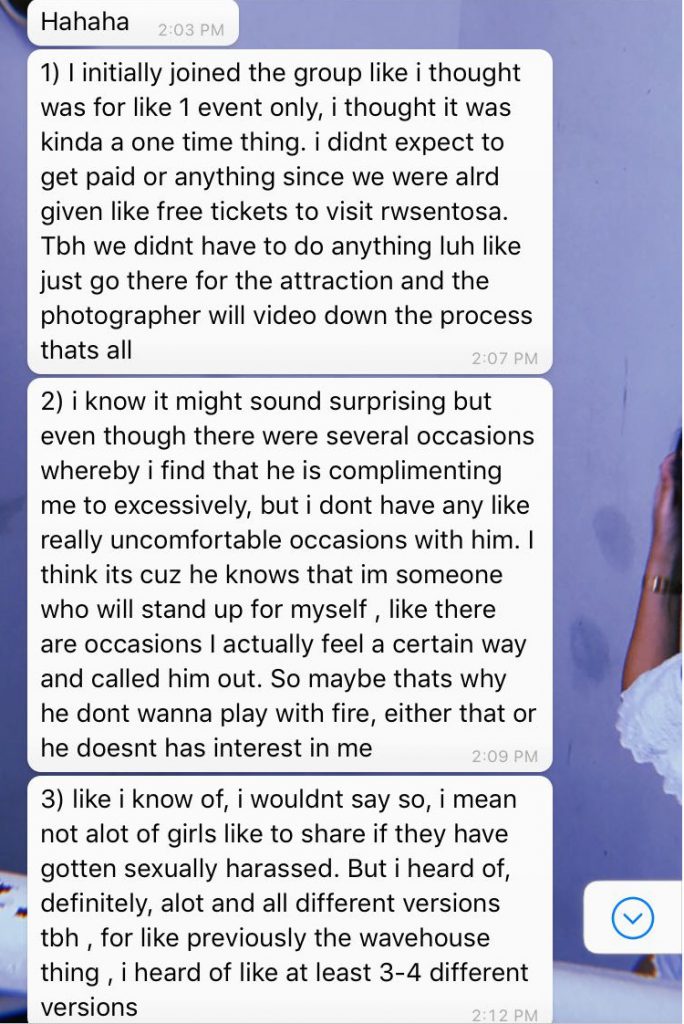
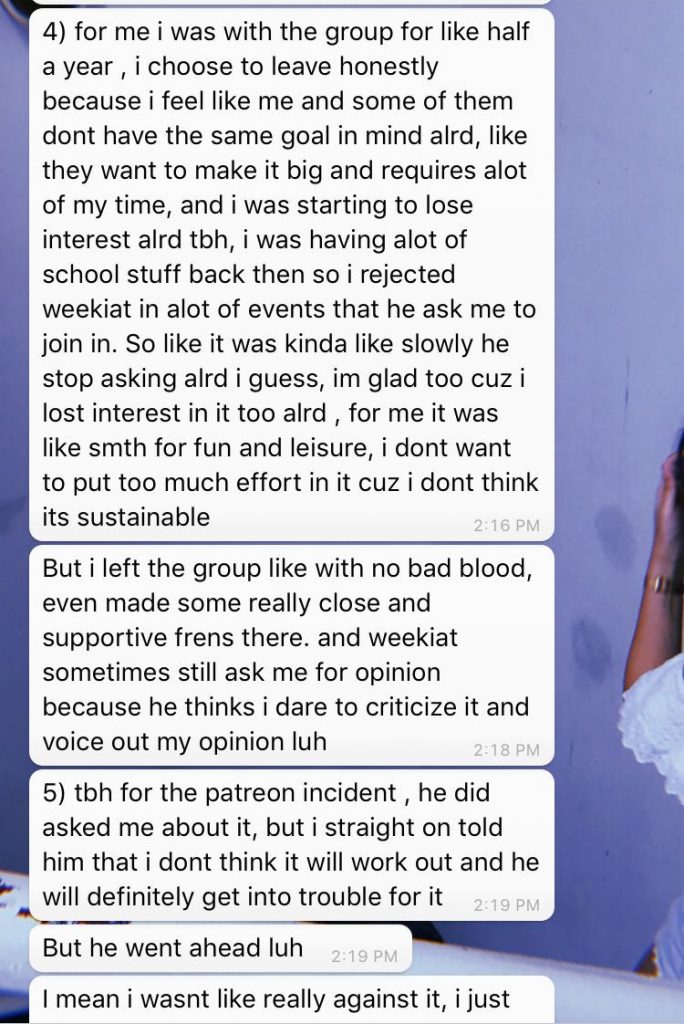
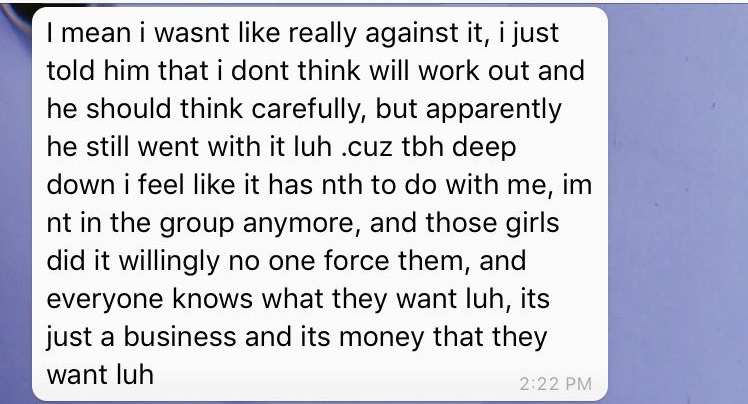
Where Should We Draw The Line?
Following netizen’s condemnation, SGInstaBabes has done some damage control. Both the official SGInstaBabes and Wee Kiat’s Instagram account have been taken down. The Patreon page is still up but besides the top banner, all other photos of the girls has been removed at time of writing.